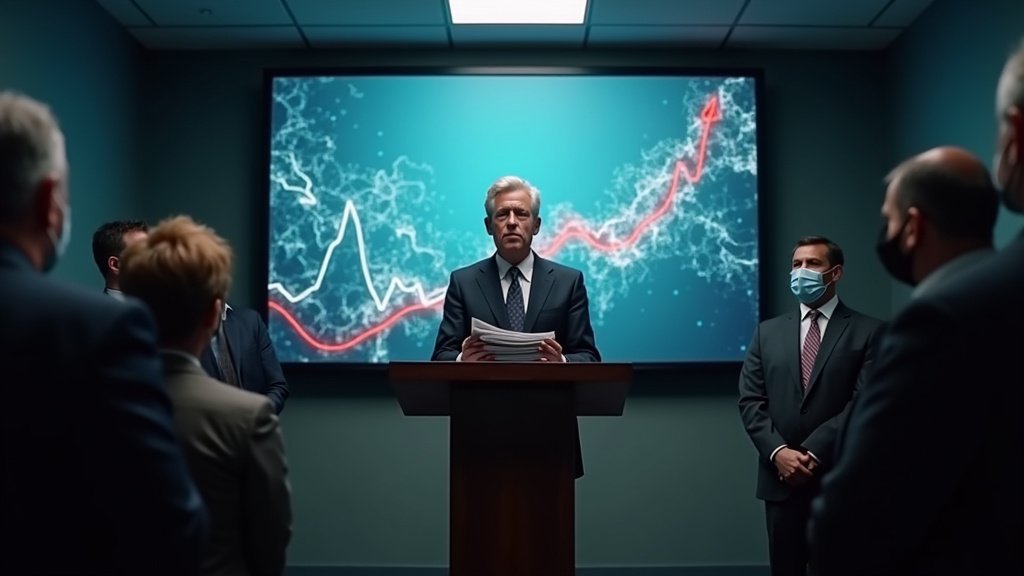COVID-19 levels are once again on the rise across Los Angeles County and the broader Southwest region, signaling concerns of another significant summer wave. Public health officials are closely monitoring the current situation, which is compounded by ongoing controversy and legal challenges surrounding recent federal vaccine policy shifts.
Signs of a Resurgence: Wastewater and Regional Data
In Los Angeles, wastewater surveillance data indicates that COVID-19 levels have climbed to their highest point since February. This method of tracking the virus in communal sewage is considered a crucial early indicator, often detecting surges before clinical tests and accounting for asymptomatic cases. Across the Southwest, the region leads the nation with a striking 12.5% COVID infection rate, according to the latest figures from the U.S. Centers for Disease Control and Prevention (CDC).
The surge is not isolated to Los Angeles and its immediate vicinity. Other states in the West and South, including California, Nevada, Arizona, and Texas, are also reporting increasing viral activity. The nationwide test positivity rate has seen an increase, and emergency department visits for COVID-19 are also on an upward trend. The highly contagious “Stratus” variant, also known as XFG, is now the predominant strain circulating, having been first detected in Asia in January, reaching the U.S. in March, and becoming the most common by late June.
Public Health Warnings and Recommendations
Given the trending increase in cases, Los Angeles County health officials are urging residents to adopt common-sense precautions, particularly older adults and those with underlying health conditions who are at higher risk for severe illness. While widespread mandates are not being called for, the Department of Public Health recommends considering high-quality masks in crowded indoor spaces and consulting doctors about recent COVID boosters. Staying home when sick also remains a critical measure to curb transmission.
Despite the Advisory Committee on Immunization Practices (ACIP) consistently recommending updated COVID vaccinations, noting that boosters reduced hospitalization risk by 44% and death by 23% in the previous year, booster uptake has been notably weak. Only approximately 23% of adults and 13% of children received the 2024–25 COVID booster, a stark contrast to the roughly half of Americans who received a flu shot.
Controversial Vaccine Policy Shifts
The current spike in cases unfolds against a backdrop of significant and controversial changes in federal vaccine policy. In May, Health and Human Services Secretary Robert F. Kennedy Jr. announced a directive to remove COVID shots from the CDC’s recommended immunization schedule for healthy children and pregnant women. This announcement, made via social media, bypassed the long-established scientific and regulatory procedures typically followed by the CDC’s Advisory Committee on Immunization Practices (ACIP).
Kennedy’s directive aimed to reverse a previous Biden administration policy that urged healthy children to receive booster shots. While his initial announcement suggested a full removal, the CDC later updated its official pediatric immunization schedule to state that decisions about COVID vaccination for healthy children (ages 6 months to 17 years) should be made through “shared clinical decision-making” between healthcare providers and parents or guardians. For pregnant women, the formal documents now offer “no guidance.” Critics point out that leaving the vaccine on the pediatric immunization schedule, even under shared decision-making, ensures continued insurance coverage for children, which would have been jeopardized by a complete removal.
Legal Challenges and Expert Opposition
This dramatic policy shift has been met with immediate and forceful opposition, leading to a legal challenge from a coalition of major medical and public health organizations. Groups including the American Academy of Pediatrics, the American College of Physicians, and the Infectious Diseases Society of America have sued Robert F. Kennedy Jr. and other federal officials, alleging that the directive was “arbitrary and capricious” and violated federal law by failing to rely on ACIP recommendations.
The lawsuit highlights concerns that Kennedy’s actions ignored established scientific procedures, contradicted prior public health guidance on risks to pregnant individuals, and potentially undermined public trust in vaccines. Further fueling the controversy, allegations have surfaced regarding the dismissal of all 17 ACIP members in early June, drawing condemnation from states like California, Oregon, and Washington, and various medical associations. This news has created uncertainty among patients and providers alike regarding vaccine recommendations and access.
Navigating the Evolving Landscape
The trending rise in COVID-19 levels, particularly in Los Angeles and the Southwest, serves as a stark reminder that the virus continues to circulate and evolve. The ongoing debate over vaccine policies at the federal level adds a layer of complexity to public health messaging and individual decision-making. As the nation grapples with this dual challenge, vigilance and adherence to health precautions remain paramount for protecting vulnerable populations and ensuring public well-being.





